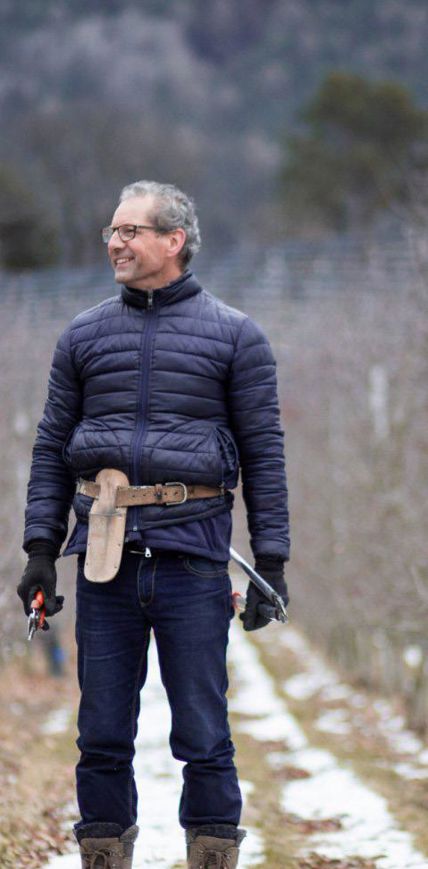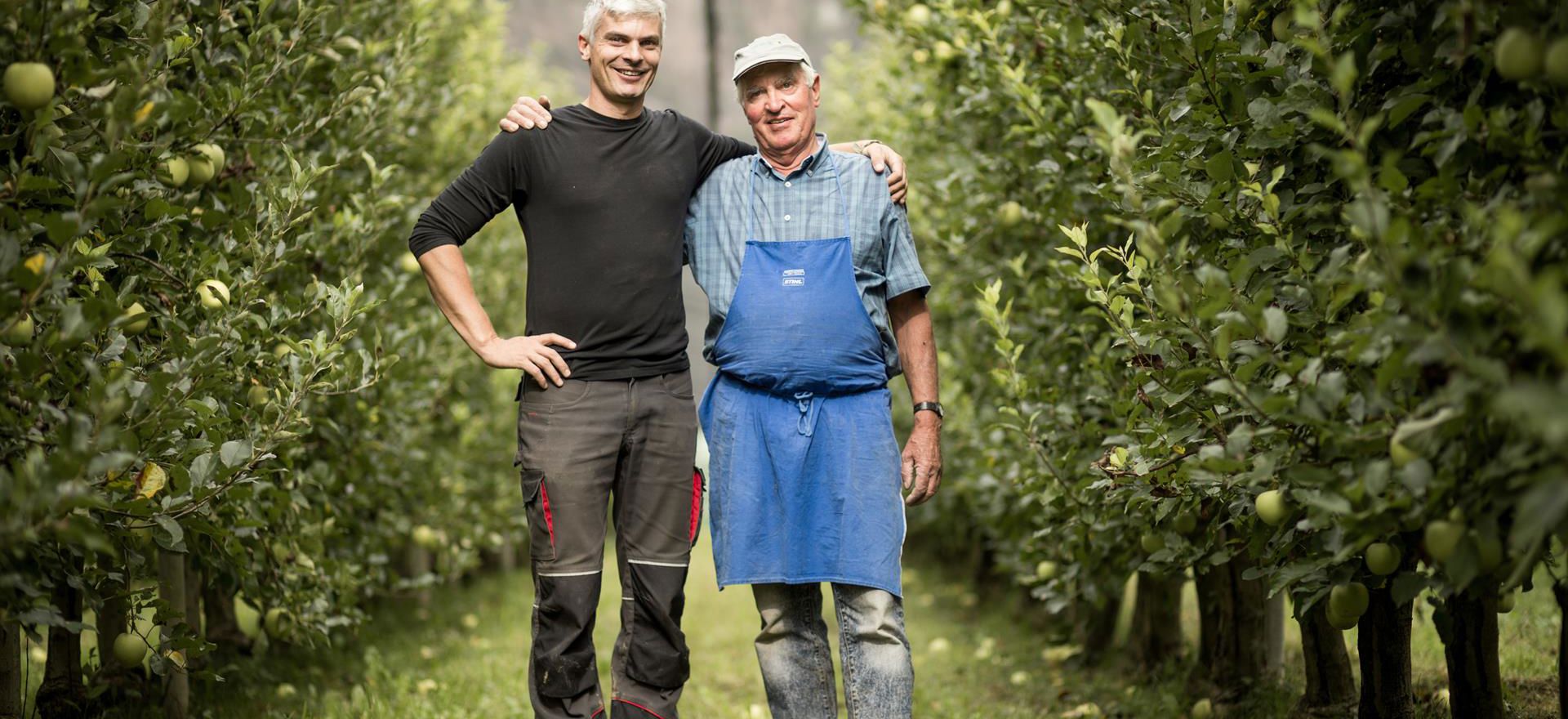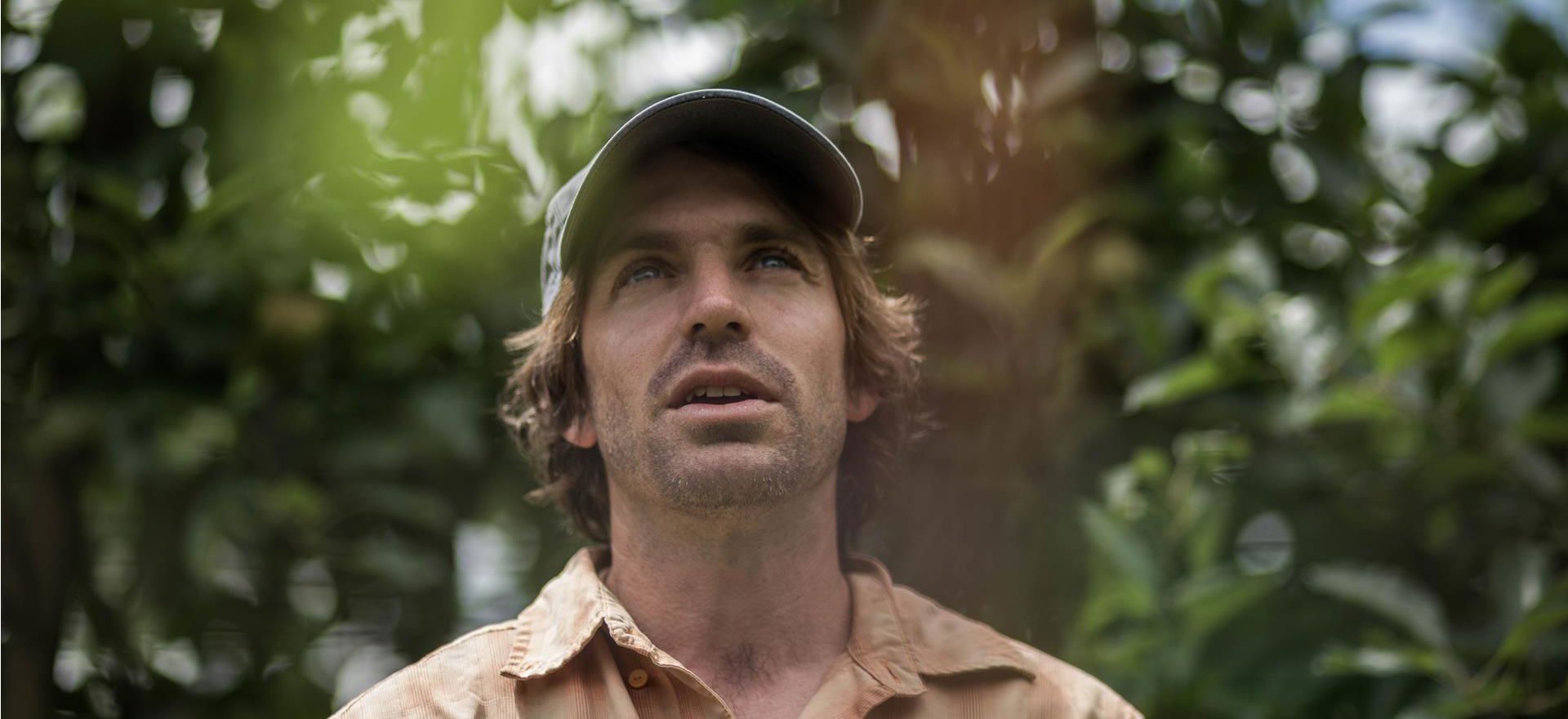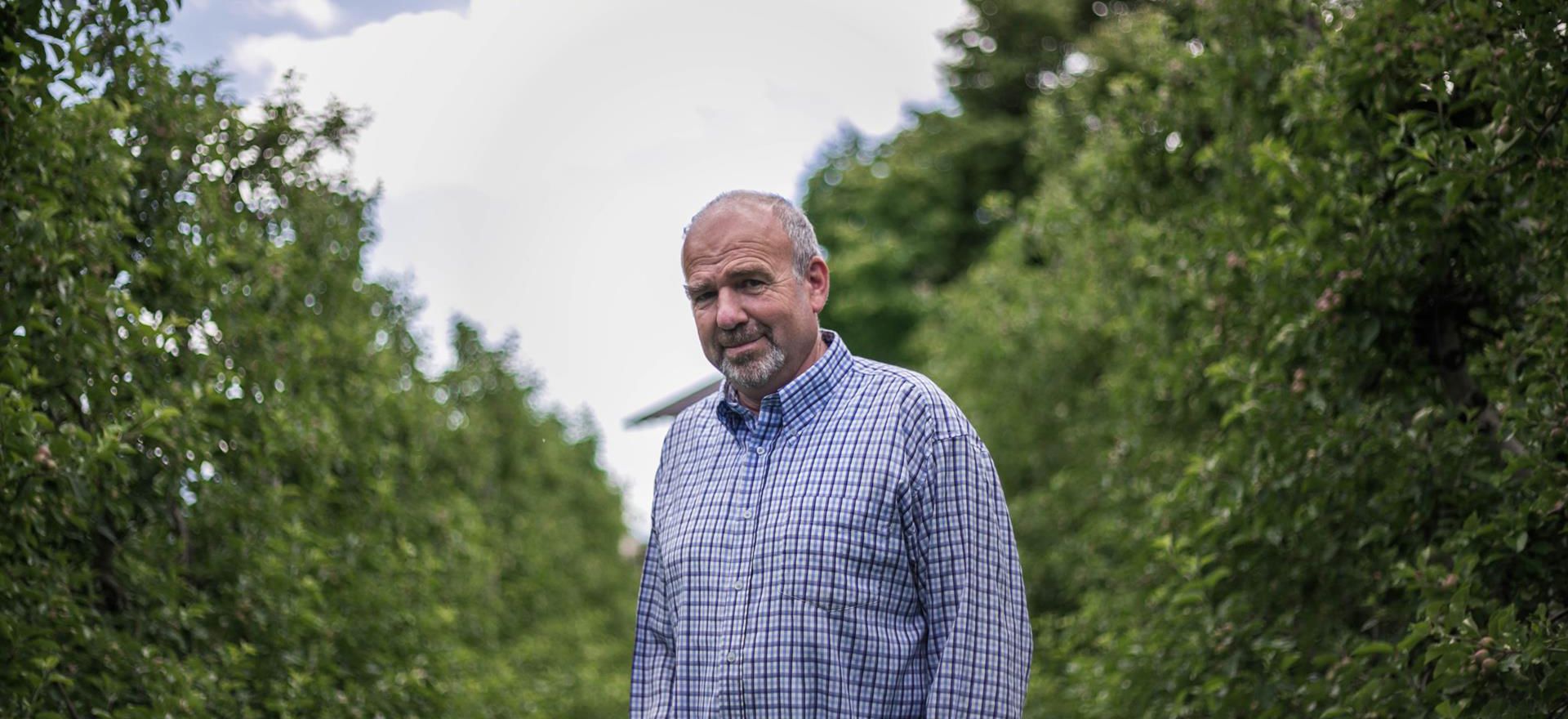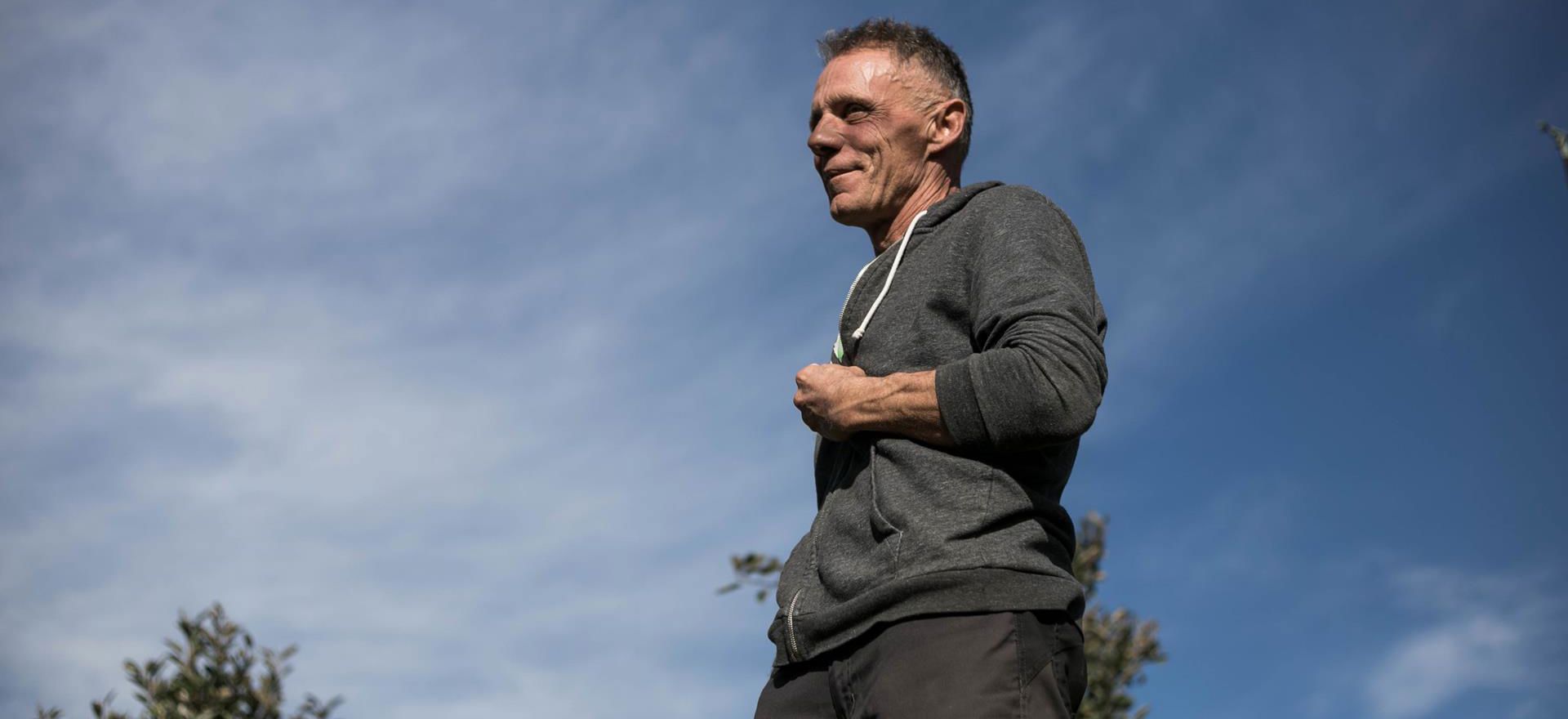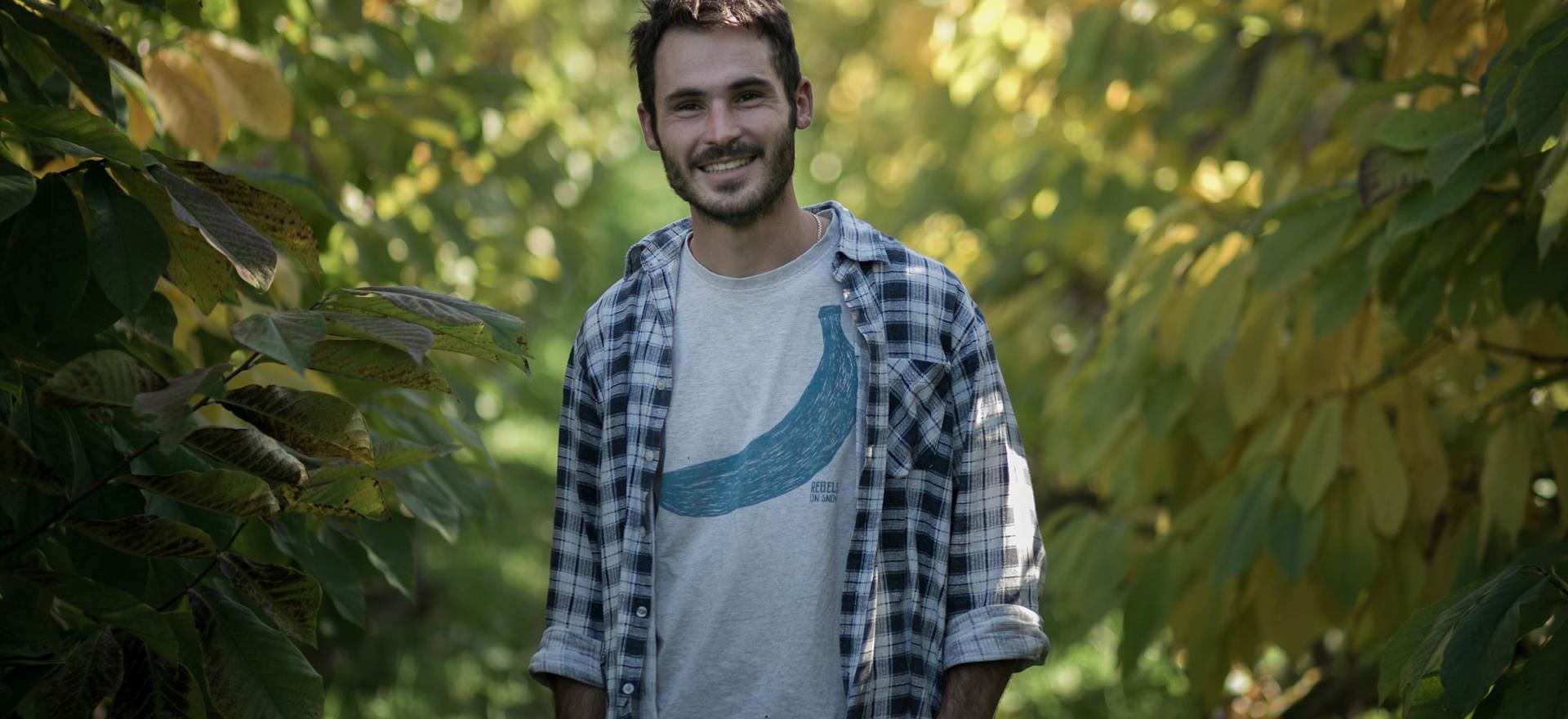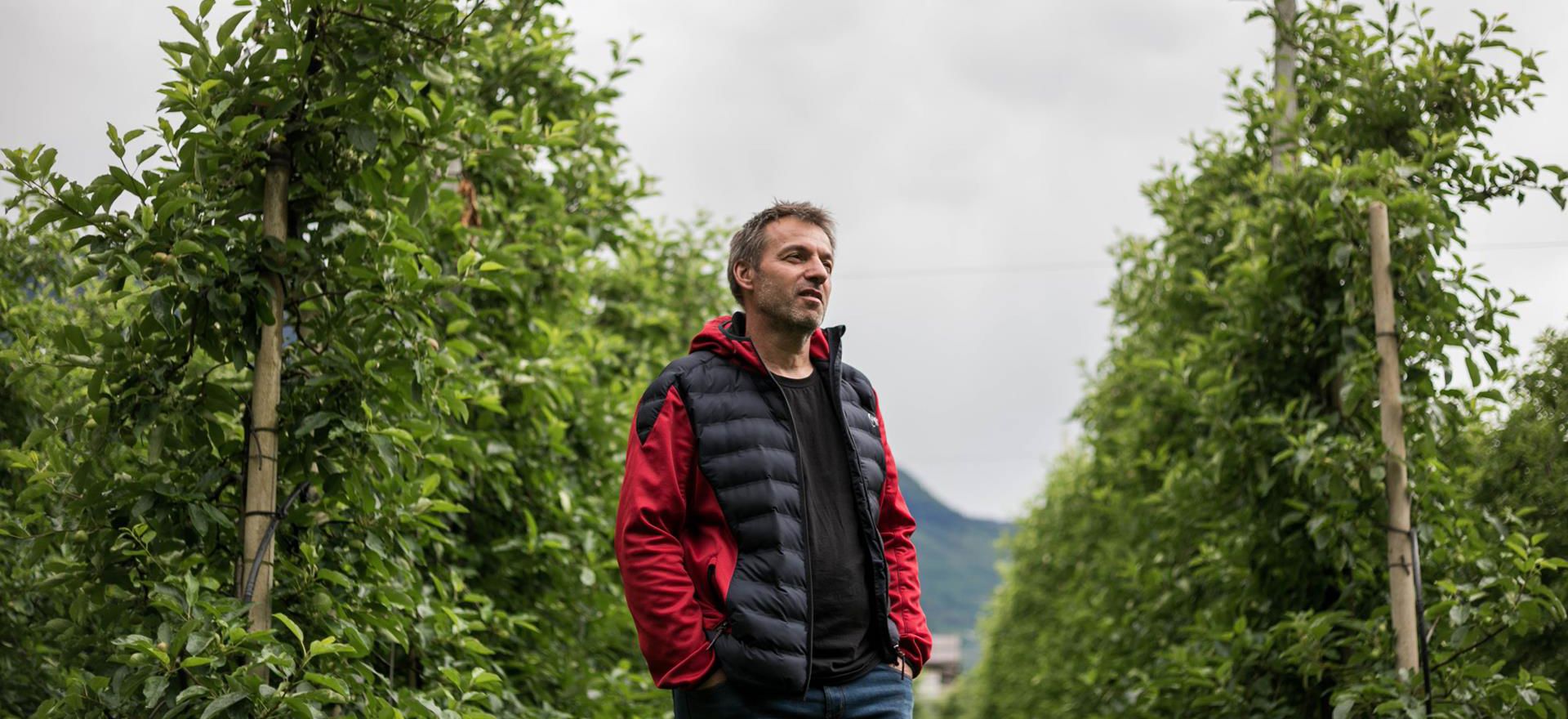It’s the early 1990s. Josef Unterfrauner is full of energy as he takes over Zöhlhof in Eisacktal from his parents.
In his role as manager, he looks after the apple orchards of Neustift Monastery with the same passion. In 1992 he marries his wife Luise. A year later, as he watches her - now heavily pregnant - standing in the meadow in front of the farmstead’s gate, it hits him like a stroke of lightning. Chemical synthetic plant protection products simply do not fit with his vision of the world. Together with Luise, he decides to change the way the farm is run.
The ‘how’ of that intention isn’t entirely clear at the time. Josef doesn’t quite know what he’s going to do. But he does know, with great certainty, that he wants to change something. Coincidence dictates the path he takes, when an old schoolfriend drops by Zöhlhof on his bicycle. He leaves more than just tyre tracks behind. As he explains how he has been forging a path as an organic apple grower in Vinschgau, the spark of inspiration takes hold of Josef.
The conversation and the evening grow longer, they are followed up by a visit to the organic farm and an information evening for organic converters in Brixen. Josef’s conviction rapidly ripens until he is determined that organic agriculture is the path for him. That same winter, he converts his fruit production and viticulture to organic processes and persuades the administration of Neustift Monastery to do the same. To him it’s a clear choice, all or nothing. It is simply not tenable for him to farm organically at home, but conventionally at the monastery.
At first, there are setbacks. The harvest and the meadows do not always agree with Josef’s wishes and ideas. However, it isn’t in his nature to give up. He immerses himself entirely in the subject of organic farming, gathers experience, absorbs everything, tries out a lot and gets to understand nature more and more. He also wants this for his own children but unfortunately the local school doesn’t measure up.
The ‘how’ of that intention isn’t entirely clear at the time. Josef doesn’t quite know what he’s going to do. But he does know, with great certainty, that he wants to change something. Coincidence dictates the path he takes, when an old schoolfriend drops by Zöhlhof on his bicycle. He leaves more than just tyre tracks behind. As he explains how he has been forging a path as an organic apple grower in Vinschgau, the spark of inspiration takes hold of Josef.
The conversation and the evening grow longer, they are followed up by a visit to the organic farm and an information evening for organic converters in Brixen. Josef’s conviction rapidly ripens until he is determined that organic agriculture is the path for him. That same winter, he converts his fruit production and viticulture to organic processes and persuades the administration of Neustift Monastery to do the same. To him it’s a clear choice, all or nothing. It is simply not tenable for him to farm organically at home, but conventionally at the monastery.
At first, there are setbacks. The harvest and the meadows do not always agree with Josef’s wishes and ideas. However, it isn’t in his nature to give up. He immerses himself entirely in the subject of organic farming, gathers experience, absorbs everything, tries out a lot and gets to understand nature more and more. He also wants this for his own children but unfortunately the local school doesn’t measure up.


